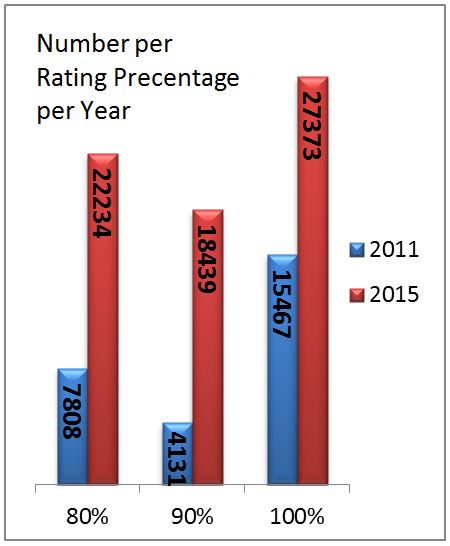An Adaptive Housing Grant is funding that is available through the VA to assist Veterans with certain service-connected disabilities to live as independently as possible for as long as possible. There are many barriers in the world for disabled Veterans, their own homes should not be one of them. Veteran’s who have limitations of movement such as in wheelchairs need spaces they can access freely such as hallways and doorways wide enough to accommodate their chair as well as turning around. However, few Veterans who are disabled already live in a home that can accommodate their needs. For this reason, the VA has grants to assist in creating barrier-free environments for Veterans.
How Does this Benefit the Veteran?

These grants are designed to improve the quality of life for severely disabled Veterans and increase the potential for independence for as long as possible. The passing of the ADA (Americans with Disabilities Act) in 1990 brought to the attention of many that disabled people were being hindered by their environments and often, with just a few changes, could live very happy, productive lives. A Veteran who lives alone and is in a wheelchair in the past would not be able to live independently for very long, being unable to take care of him or herself in the typical housing layout that exists. However, with adaptations, it is possible for them to not only live alone but to thrive.
What Types of Grants are there?
There are several types of grants that address different types of environmental adaptations. One is for purchasing a new home, one for adapting a current home, and there are also temporary grants for temporary living spaces such as a family member’s home a Veteran may be living in until they are able to move into more permanent housing due to needing 24 hour care for a length of time until they are recovered enough to live more independently. You can see all the details at the VA Housing Grants Web site.
Specially Adapted Housing (SAH) Grant: This grant can be used several ways:
- Construct a specially built home on land that the Veteran is purchasing;
- Construct a specially build home on land the Veteran already owns;
- Remodel an existing home the Veteran owns to accommodate their disability; or
- Apply the grant to the unpaid mortgage of an adapted home already acquired without the assistance of a VA Grant.
Eligibility requirements:
- Loss of or loss of use of both arms and/or both legs;
- Loss of or loss of use of one leg and one arm together;
- Loss of or loss of use of one leg and the residuals of organic disease or injury;
- Loss of or loss of use of one or more lower extremities due to service on or after 9/11/01 which so affects the functions of balance or propulsion as to preclude ambulating without the aid of braces, crutches, canes, or a wheelchair;
- Blindness in both eyes or only light perception; or
- Certain severe burns.
To get more information on eligibility, contact sahinfo.vbaco@va.gov
Special Housing Adaptation Grant: This grant can be used to:
- Adapt a home the Veteran or a family member already own and lives in;
- Adapt a home the Veteran or family member intends to purchase for the Veteran to live in; or
- Help a Veteran purchase a home already adapted which they will live in.
Eligibility requirements:
- Blindness in both eyes with 20/200 visual acuity or less;
- Loss of or loss of use of both hands;
- Certain severe burn injuries; or
- Certain severe respiratory injuries.
Renovations that qualify under SAH or SHA Grants
Many types of renovations can qualify under the grant programs. The maximum dollar amount allowable for SAH grants in FY 2017 is $77,307 and for SHA grants is $15,462. There are also temporary grants available for temporary living arrangements. Veterans may use the grants up to three times in their lifetime.
- Bathrooms, kitchens, and bedrooms;
- Covered porches, ramps, and walkways;
- Garages, carports, and passageways;
- Doors, windows, and flooring materials;
- Security items;
- Concrete or asphalt walkways;
- Sliding doors, handrails, and grab bars.
While there are many innovative adaptations being marketed today for people with disabilities; make sure you get approval from the VA before you contract for any renovations, especially for anything new such as computerized or smart home adaptations. Grants can be very specific about what they will and will not pay for. Also, be aware that if the grant will pay for certain things, that may free the Veteran up to pay for other adaptations that the grant may not pay for, so getting the grant does not mean you are limited completely, only by what the grant will fund. There are also several charitable organizations that assist severely disabled Veterans with renovations, grants, and other funding.
Things to Remember about Accessible Housing:
Be specific to your situation. Meet with someone who is an expert in adaptive housing who can give you ideas about things you may not have thought of, for example, lever door handles; best flooring options; home technology issues; cleaning assistance (robot vacuums, etc.); spaces under sinks and counters; switches and plugs within reach, etc. There are hundreds of small things that someone who is not disabled won’t think of and someone who is newly disabled or who hasn’t lived in an accessible environment may not realize can be adapted. Research and ask, you may not realize that even something as little as the angle of a light may make a huge difference, especially when they can’t reach it. Creating an adaptive space helps create an environment that promotes positive emotions, acceptance, independence, and well-being. This, in turn, leads to fewer health problems, decreased anxiety and depression, and increased healing and self-esteem. It is a small price to pay for the benefits that adaptive housing produces. If you are a Veteran who may be eligible for this benefit, please apply today.




